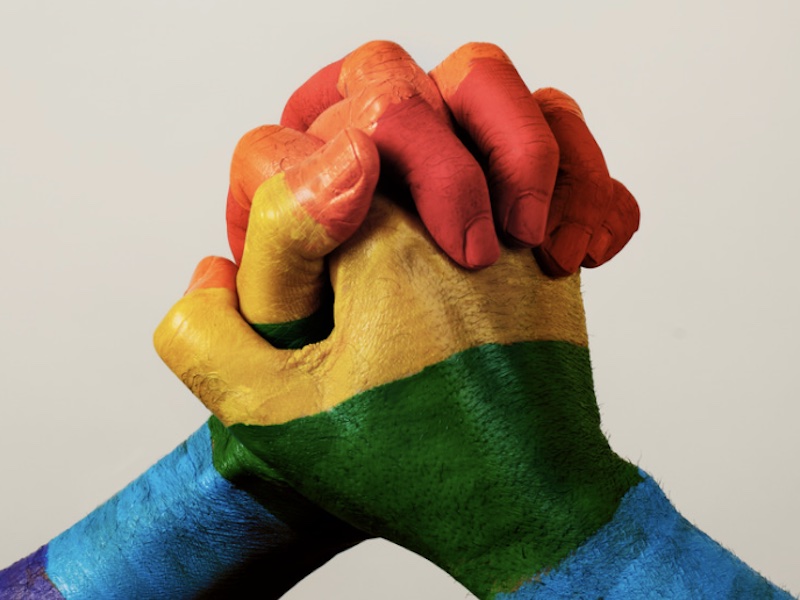
Article provided by Ceysa McKechnie, UK Diversity, Equity and Inclusion Programme Lead at Amazon
I spend a lot of my day thinking about this question. My job at Amazon is the UK Diversity, Equity & Inclusion Lead, a role I started after realising I wasn’t completely satisfied in software development. Having previously set up Glamazon’s (Amazon’s award-winning LGBTQ+ affinity group) Edinburgh chapter, I realised this sort of work was what I wanted to do full-time. I worked with senior leaders in the company to shape this brand new role focused solely on pulling together all of our great existing DEI work across the business, and helping to find new ways to making Amazon in the UK a more diverse, equitable and inclusive workplace. I also have a voluntary role as the acting head of Glamazon UK.
The Chartered Institute of Personnel and Development (CIPD) released a report in 2019 that described an inclusive work environment as one where ‘people feel valued and accepted in their team and in the wider organisation’ and are able to thrive at work as a result. We want our employees and colleagues to be able to feel themselves and make a real contribution. For that to happen, we have to build organisations that empower and enable employees to do so.
Most organisations know they should be inclusive on some level, but they aren’t sure how to make that happen. Ensuring your recruitment process stretches across diverse cross-sections of the population is an obvious starter, while the rise of unconscious bias training continues to grow within companies. It is encouraging to see these steps, but I’d like to suggest a few others that are less frequent, but just as important.
More commonly known outside of Amazon as Employee Resource Groups (ERGs), these are groups of employees that support those with similar backgrounds, interests or demographic factors like sexual orientation, ethnicity, disabilities, or even family structure. Having spaces where employees feel represented and amongst others with similar life experiences is great for building a welcoming and inclusive team. Employees can build networks for their professional and personal life, influence and build company-wide policies, and make new employees feel comfortable. Rather than being constructed top down, employees should be encouraged to set up their own groups as they see fit, and then employers must make sure they are supported. The affinity group I help run, Glamazon, has been supporting the LGBTQ+ community at Amazon for over 20 years. We help to shape internal Amazon policies, create employee resources like the transgender toolkit we released a few years ago, work with external partners on charity events, and more, all run by our community of volunteers.
Bringing these communities together can be helpful too. I organise a monthly group call for the heads of Amazon’s affinity groups where we get together and discuss any news or projects we are working on. This way all our diverse communities can learn from each other, and take forward initiatives from others that they see value in. Make sure your workplace has these opportunities to connect and explore intersectional experiences. For International Women’s Day for example, my Glamazon team are working with the Families group to coordinate a communal event for trans and gender nonconforming employees – something that wouldn’t have been possible without regular communication between us.
Organisations’ leadership often lack diversity. A report by D&I consultancy The Pipeline found that there are more CEOs named ‘Peter’ leading top UK companies than female CEOs. While steps are taken to help have diverse representation at every step of the corporate ladder, current senior leaders should undertake as much education as possible to ensure they are helping their employees feel safe and included. DEI learnings should be treated as equally important to leadership development as other skills.
One way we’ve incorporated that at Amazon is by encouraging reverse mentoring. We have a programme which brings together more junior employees with senior leaders to talk about their personal and professional experiences, and the factors that might have impacted them, such as sexuality, disability or religion. Junior employees learn what it takes to become leaders, and can give input on how business-wide decisions impact the rest of the workforce, while the management team gains fresh perspectives on the business. Rolling out programmes like this helps at each end of the business and builds a warm and personable atmosphere where everyone is approachable.
Not all inclusion programmes add value, and when thinking about new workplace practices and activities, thought should go into considering if these are performative or impactful. It’s easy to do performative actions, which are quick, easily visible, and fade soon after they take place. Impactful activities have deep and strategic planning put into them, and reflect on how they can really move the needle over the long term. Embracing impactful action, and one or all of the above, could really make the difference for LGBTQ+ employees this month.
 About the author
About the authorCeysa joined Amazon four years ago in London after completing an MBA at University of Oxford, and now lives in Edinburgh, Scotland, where she spends her summers wild camping with her mini dachshund, Shanti. Now the Diversity, Equity and Inclusion Lead at Amazon UK, she prides herself in representing her community in the workplace, making it as colourful and diverse as the world around us.
